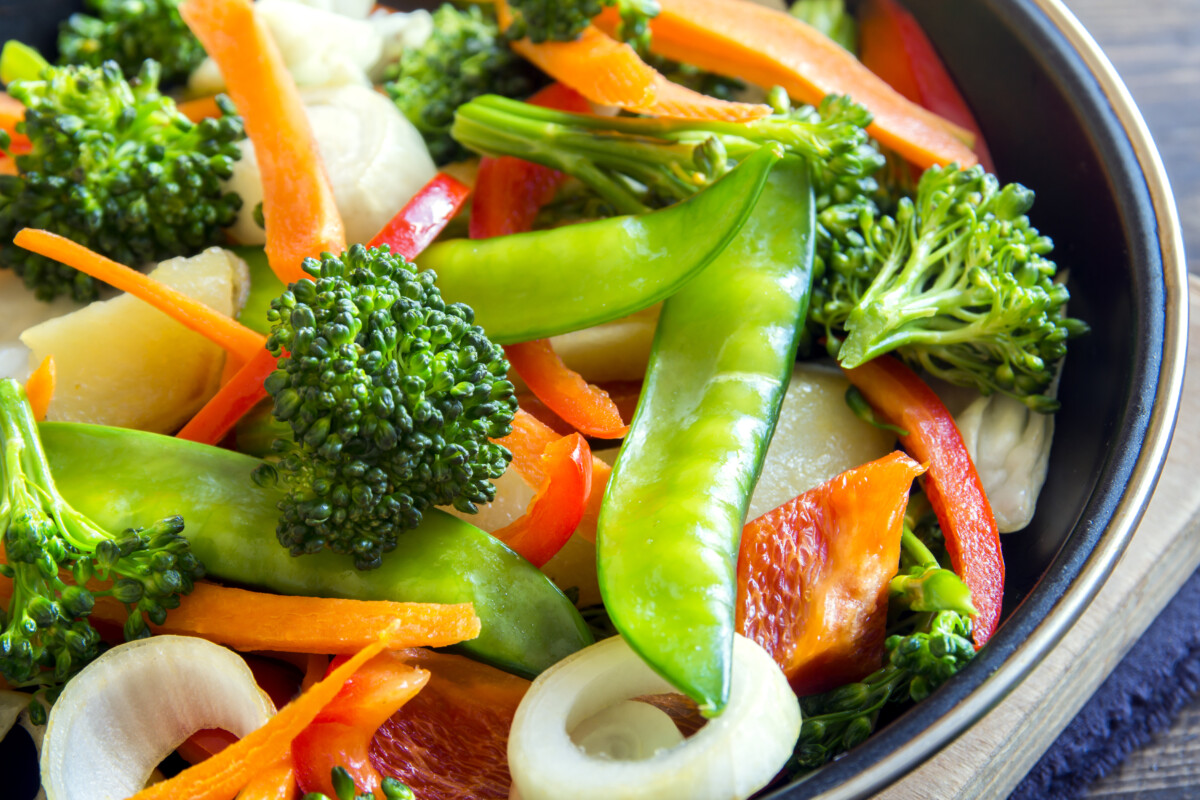Taking the Meat-Free Plunge

Going meat free isn’t the “fringe diet” it once was. Vegetarian and vegan options are popping up on restaurant menus even in the meat loving state of Indiana. Vegetarian blogs such as “Cookie and Kate” or vegan blogs such as “Pickles and Honey” offer countless recipes for meat-free home cooking.
There is no “one size fits all” vegetarian diet. Lacto-vegetarians eat dairy products. Ovo-vegetarians eat eggs. Lacto-ovo vegetarians eat both. Vegans, who embrace the most extreme form of vegetarianism, don’t allow any animal products at all. However, the hallmark of all forms of vegetarianism is a diet that is either entirely (or almost entirely) free of meat.
So, what’s all the fuss? Is meat-free eating a popular fad or a healthier alternative with staying power?
Scientific research has shown that vegetarianism has the following health benefits:
1) Vegetarian diets are great for weight loss. Veganism is slightly better for weight loss than lacto-ovo vegetarianism, but both diets help in this category.
2) Vegetarian diets help with diabetes. Vegetarianism helps reduce blood sugar, triglycerides, and waist circumference. It also improves glycemic control.
3) Vegetarian diets are associated with lower blood pressure.
4) Vegetarianism can be good for your heart. When combined with exercise and stress management, a low-fat vegetarian diet has been found to stop and, in some cases, reverse, the accumulation of atherosclerotic plaque. This leads to a reduction in the risk of a heart attack.
Other than missing out on Fourth of July fried chicken, what are the downsides of a vegetarian diet?
1) A vegetarian diet requires planning. While menus are expanding, veggie burgers are still not as common at the drive-through as beef.
2) Vitamin B-12, a necessary nutrient, is only found in meat products. This can easily be remedied, however, with a vitamin supplement.
3) Although eating vegetarian is a healthier option in general, it still needs to be done sensibly. Even plant-based fats should be eaten in moderation. The same applies to white flour, sugar and sweets.
If you decide to change to a vegetarian diet, quitting meat “cold turkey” may not be the best option. Before focusing on what you’re not going to eat, you need to find vegetarian foods that you’ll actually enjoy eating. Having pleasant alternatives to the foods you’re dropping from your diet will make it much easier to stick with your resolutions. 95 Healthy vegetarian recipes | BBC Good Food
Begin by enjoying one or two vegetarian days a week. Only after you have a variety of vegetarian meals in your new dietary “toolbox”, should you increase your number of meat-free days. As you gradually get used to a new way of eating, you can focus more on the delicious food you’re adopting, and less on the steaks and burgers you’re leaving behind.
Although it’s doubtful that you’ll completely stop missing some of your favorite meats, it’s unlikely that the foods you miss will be more important than how much better you feel.
